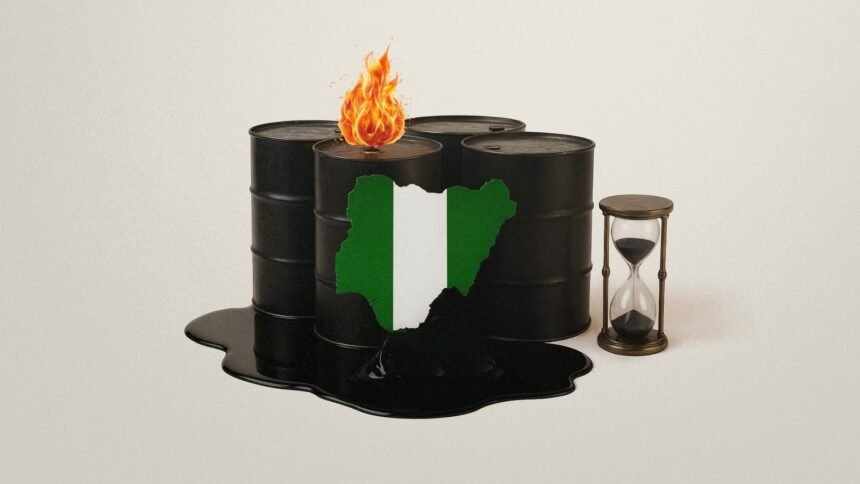For a country that once swaggered as Africa’s top oil producer, Nigeria’s recent comeback has been less about celebration and more about survival. After years of declining output, pipeline sabotage, and investor flight, the continent’s energy giant is finally pumping more crude — and cautiously, the world is taking notice. Oil production now hovers between 1.7 and 1.83 million barrels per day, the highest level in almost three years. On the surface, that sounds like good news. But for Nigeria, this rebound is less a victory lap and more a race against time.
The government credits a series of reforms introduced under President Bola Tinubu’s administration for the turnaround. The Petroleum Industry Act (PIA), which had gathered dust since its passage in 2021, is being revived with promises of clarity and enforcement. Licensing terms are being simplified, new contracts are being signed, and a drive against oil theft — Nigeria’s chronic curse — has been stepped up. “We’re finally creating an environment investors can trust,” the Minister of Petroleum Resources declared at a recent conference in Abuja, flashing a smile that seemed both hopeful and slightly defensive.
Investors, long weary of Nigeria’s volatility, are cautiously returning. International oil companies like Shell, TotalEnergies, and Chevron are expanding offshore projects, while independent Nigerian firms are eyeing marginal fields once deemed unprofitable. The Nigerian National Petroleum Company Limited (NNPCL), restructured into a commercial entity, is cutting back on bureaucratic sprawl and signing joint ventures that actually deliver results. Yet optimism is tempered by realism. Global energy markets are shifting fast, and the clock on fossil fuels is ticking louder each year.
Nigeria’s problem, as economists like to remind, isn’t production capacity — it’s productivity. The country still imports nearly all its refined petroleum, bleeding billions of dollars in subsidies and foreign exchange each month. The much-anticipated Dangote Refinery, once touted as a panacea, has begun partial operations but hasn’t yet reached full-scale output. “We’re exporting crude and importing chaos,” joked a Lagos-based analyst. “Until we refine at home, this oil boom is just recycled tragedy.”
Yet, for all the cynicism, there’s genuine movement. Drilling activity has increased in the Niger Delta and offshore fields. A crackdown on illegal tapping has reduced daily losses, which previously swallowed up to 400,000 barrels a day. The government has also begun to digitise monitoring systems and deploy drones for surveillance — a move that blends technology with desperation. “We can’t patrol every pipeline, but we can watch every metre,” an NNPCL engineer said proudly.
But Nigeria’s oil revival isn’t just about numbers; it’s about trust. Decades of corruption, mismanagement, and environmental neglect have poisoned relations between the state and oil-producing communities. The scars of the Niger Delta — oil-slicked rivers, gas flares lighting the night sky, and impoverished villages sitting atop wealth — still haunt the narrative. Local activists warn that unless revenue-sharing and cleanup commitments are honoured, history will repeat itself. “You can’t drill peace out of injustice,” said an environmental lawyer from Port Harcourt. “People need to see benefit, not just pipelines.”
Meanwhile, ordinary Nigerians are asking a simpler question: when will this oil wealth translate into lower prices, more jobs, and electricity that doesn’t vanish mid-sentence? Inflation remains high at over 20 percent, and the naira continues its slow, painful slide. For many citizens, rising oil output feels like a headline detached from their daily lives. “They say production is up,” sighed a taxi driver in Abuja. “But so is petrol. So what’s the point?”
The government insists the benefits will come, pointing to plans to boost gas exports, attract refineries, and link energy revenues to infrastructure development. The ambition is bold — to transform oil from a curse into capital for diversification. But Nigeria has danced to this tune before. The challenge, as ever, is governance. Transparency in contracts, efficiency in spending, and a crackdown on revenue leakages will decide whether the reforms endure or fade into familiar disappointment.
Still, the current momentum cannot be dismissed. For once, Nigeria isn’t making promises — it’s producing results, however modest. The global market, too, is tilting slightly in its favour. With geopolitical tensions disrupting supply chains and OPEC watching African producers more closely, Nigeria’s re-emergence could reshape regional dynamics. Its success, however, depends on more than barrels per day. It depends on whether a new generation of policymakers can finally break the country’s oil addiction while still profiting from it.
In the creaking control rooms of Warri and the sleek offices of Lagos, there’s a quiet sense of urgency — a recognition that Nigeria stands at a crossroads. The oil giant is stirring, its engines sputtering back to life. But unless the profits fuel transformation rather than repetition, the comeback will be short-lived. As one industry insider put it dryly, “Nigeria doesn’t need another oil boom. It needs to make this one the last.”










